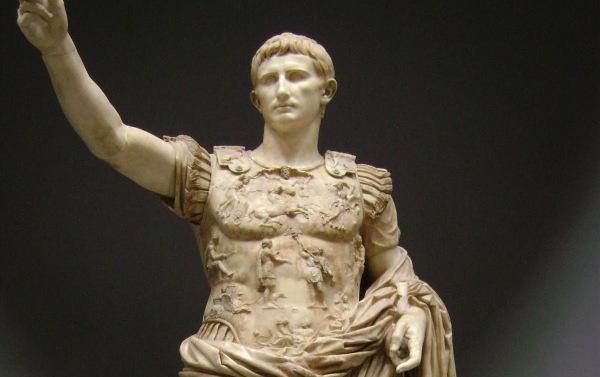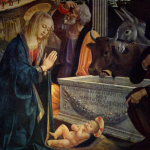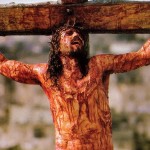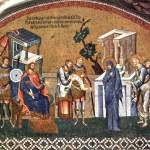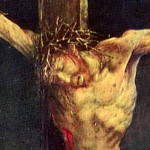The 100-Year Old Mistake About the Birth of Jesus
by Jimmy Akin
Filed under Historicity, The Incarnation
You know how people often say that Jesus was born in 4 B.C., 6 B.C., 7 B.C., or a time earlier still? The calculations that lead to these dates are all based on a proposal that was made just over a hundred years ago.
But now scholars are challenging this proposal, because it looks like it's wrong. And it's been distorting our understanding of when Jesus was born for over a hundred years.
Here's the story. . . .
When Herod Died
The Gospel of Matthew records that Jesus was born during the reign of Herod the Great. Luke doesn't say it explicitly, but he does indicate that the birth of John the Baptist was foretold during Herod's reign. If Jesus was born during the reign of Herod the Great then he must have been born before Herod died. (He wasn't a zombie king.)
Here's where the problematic proposal comes in: In the late 1800s, a German scholar named Emil Schurer proposed that Herod died earlier than previously thought.
Specifically, he claimed that Herod died in 4 B.C. This view caught on among scholars, and so now it's common for people to date the birth of Jesus no later than 4 B.C.
If a scholar takes seriously the account of the slaughter of the holy innocents then, since Herod killed all the baby boys two years old and under, that would push Jesus' birth up to two years earlier, landing us in 6 B.C.
And it could have happened even before that.
So that's why people often date Jesus' birth in this way, even though it is not when the Church Fathers indicated Jesus was born.
Why 4 B.C.?
Why do advocates of the Schurer view hold that Herod died in 4 B.C.? Here are several reasons:
- Based on statements in the Jewish historian Josephus, Herod was first appointed king in 40 B.C. and then reigned for 36 years (so, he died in 4 B.C.).
- Again based on Josephus, after Herod was appointed king, he conquered Jerusalem in 37 B.C. and reigned for 33 years (again, dying in 4 B.C.).
- Again based on Josephus, Herod died between a lunar eclipse and Passover. In 4 B.C., there was a partial lunar eclipse 29 days before Passover.
- We have various lines of evidence suggesting that Herod's sons took office in 4 B.C.
Sounds like a solid case, right?
Not exactly. It's shot through with problems.
Let's take a brief look at each of the four arguments . . .
1. When Herod Was Appointed King
Since the B.C./A.D. system of dates hadn't been invented yet, Josephus used ancient methods of dating that we no longer use.
One method was dating events in terms of which Olympiad they took place in. An Olympiad was a four-year period based on when the Olympic Games took place. (Yes, the ancients were huge sports fans.) Each Olympiad began in midyear and ran for four years.
Josephus says that Herod was appointed king during the 184th Olympiad, which ran from July 1, 44 B.C. to June 30, 40 B.C.
He also says that he was appointed during the consulship of Calvinus and Pollio. Consuls were Roman officials who reigned during specific years, and it was common to date events by the consuls who were in office at the time.
Calvinus and Pollio began their consulship after October 2, 40 B.C. That's in the 185th Olympiad.
See the problem?
The 184th Olympiad ended before Calvinus and Pollio were consuls. Josephus has given us an impossible date. He must be wrong on this one.
2. When Herod Conquered Jerusalem
Josephus says that Herod conquered Jerusalem in the 185th Olympiad during the consulship of Marcus Agrippa and Caninius Gallus. That does point to 37 B.C.
But Josephus also says that Herod conquered Jerusalem exactly 27 years--to the day--after it fell to the Roman general Pompey. But Pompey conquered Jersualem in 63 B.C., and 27 years later would be 36 B.C., not 37 B.C.
Furthermore, he says that the government of the Hasmoneans (who ruled Jerusalem prior to Herod conquering the city) for 126 years. According to 1 Maccabees and Josephus himself, they began ruling in 162 B.C., which would put the date of Herod's conquest in 36 B.C. (162 -126 =36).
So Josephus, again, gives contradictory information about when Herod conquered Jerusalem, indicating in some places that it was in 37 and in others that it was 36.
3. When the Lunar Eclipse Was
There was, indeed, a partial lunar eclipse in 4 B.C., which took place 29 days before Passover.
However, this was not the only lunar eclipse in the period. There was another lunar eclipse in 1 B.C., which was 89 days before Passover.
Now here's the thing:
1) Since there is more than one eclipse in this period, you can't cite the 4 B.C. eclipse as evidence supporting a 4 B.C. date in particular. You have to consider other eclipses in the right time frame and see which best fits the evidence.
2) The lunar eclipse in 4 B.C. was only partial, but the lunar eclipse in 1 B.C. was full. Josephus doesn't say it was a partial lunar eclipse. He says it was a lunar eclipse, and a full eclipse fits that description better.
3) The 4 B.C. span of 29 days between the eclipse and Passover is too short. Josephus doesn't just say that Herod died between the eclipse and Passover. He also names a bunch of things Herod did during that period, including trips that required travel time.
As contemporary biblical chronologer Andrew E. Steinmann points out:
"[A]ll of the events that happened between these two [the lunar eclipse and Passover] would have taken a minimum of 41 days had each one of them taken place as quickly as possible. A more reasonable estimate is between 60 and 90 days" (From Abraham to Paul, 231)
Thus, again, the 1 B.C. lunar eclipse--89 days before Passover--better fits what Josephus describes.
4. When Herod's Sons Began to Reign
It is true that we have multiple lines of evidence indicating that Herod's sons began to reign in 4 B.C.
That's doesn't mean Herod died then.
It was very common for aging rulers to take their successors as co-rulers during the latter part of their reign. This both took some of the pressure off the aging ruler and helped ensure a smooth succession when he died by lessening the chance of a power struggle after his death (people were already used to the new ruler, who was already in office).
That means that when you have ask whether a particular ruler's assumption of office was as co-ruler or as sole ruler. It could have been either one, so this argument does not prove that Herod died in 4 B.C.
Furthermore, we have evidence that Herod did start giving his sons governing authority before his death.
I'm trying to keep this post as short as possible though, so . . .
The Case for 4 B.C. Is Exceptionally Weak
All four of the main arguments proposed are problematic:
- The first argument names an impossible date (one that did not exist) for the beginning of Herod's reign.
- Josephus contradicts himself about when Herod conquered Jerusalem.
- There is another lunar eclipse that fits what Josephus says even better.
- We have evidence that Herod began giving his sons rulership roles before he died.
And there is much more that could be said (as there always is with biblical chronology). My favorite resources on this question are Jack Finegan's outstanding Handbook of Biblical Chronology (2nd ed.) and Andrew Steinmann's informative From Abraham to Paul. Both of those are hard to get and/or expensive, though.
Fortunately, if you'd like to tear into the evidence in mind-numbing depth, you can also read this paper by Steinmann for free.
This still leaves us with the big questions: When did Herod the Great actually die? And when was Jesus Christ born?
Stay tuned for my next post on Wednesday....
PS. If you like the information I've presented here, you should join my Secret Information Club. If you're not familiar with it, the Secret Information Club is a free service that I operate by email. I send out information on a variety of fascinating topics connected with theology, science, history, and more.
Just sign up at www.SecretInfoClub.com or use this handy sign-up form:
If you have any difficulty, email me at jimmy@secretinfoclub.com.
Related Posts
Note: Our goal is to cultivate serious and respectful dialogue. While it's OK to disagree—even encouraged!—any snarky, offensive, or off-topic comments will be deleted. Before commenting please read the Commenting Rules and Tips. If you're having trouble commenting, read the Commenting Instructions.




